Genetic options for improving fodder yield and quality in forage sorghum
DOI:
https://doi.org/10.17138/tgft(3)49-58Abstract
Improving yield and quality of fodder from forage sorghum is important, especially in the semi-arid tropics, where sorghum is a major source of fodder. The aim of this work was to understand the genetic basis of fodder yield and quality traits, and character associations, and to estimate combining ability of the parents. The experiment was carried out during 2 successive rainy seasons using 10 parents crossed in a half-diallel design. Significant differences among the genotypes for fodder yield, quality and cell wall constituents were observed. Important quality traits, crude protein and digestibility (IVOMD), were not correlated with fodder yield, indicating the potential to improve yield and quality simultaneously in forage sorghum. General combining ability and specific combining ability variances showed that, for almost all characters, both additive and non-additive gene effects were important, with a predominance of non-additive effects. Parental lines SEVS4, HC308 and UPMC503 were good general combiners for yield and quality. The brown midrib lines, EC582508 and EC582510, were good general combiners for low lignin and high IVOMD. Strategies for improving forage sorghum to suit animal and biofuel industries are discussed.
Keywords: Digestibility, crude protein, ADL, diallel analysis, gene effects.
DOI: 10.17138/TGFT(3)49-58



